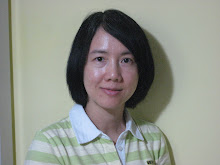


DEALING WITH FITS
WHEEL POWER
By ANTHONY THANASAYAN
24 July, Thursday
Having lived with epilepsy for more than 30 years, Serene Low is out to promote awareness about the condition.
SERENE Low is no ordinary woman. The plucky mother and homemaker from Bangsar, Kuala Lumpur, has been an activist for persons with epilepsy (PWE) for the past seven years. She chose to champion the cause because she has epilepsy – a condition marked by seizures that can occasionally be violent. The attacks occur because of over-activity of the brain cells which produces a surge of electricity.
Serene, who is close to 50, has been living with epilepsy for over 30 years. She has endured more than a hundred seizures. The last one occurred four years ago. Fortunately, the convulsions stopped after she started taking medication.
Serene was all praise for an epilepsy congress she attended in Xiamen, China, in May. The 7th Asian Oceania Epilepsy Congress (AOEC), a four-day biennial event, was attended by 1,600 delegates from around the world.
“The congress was about PWE and their caregivers,” she explained. We learnt about the latest progress in the treatment of epilepsy in developed and developing countries.
“The segment I liked most was the one on Adolescence & Women. Using a 15-year-old epileptic girl’s condition as a case study, the medical delegates were reminded to be extra careful when prescribing anti-epileptic drugs,” said Serene. The delegates were told that the medications prescribed should not adversely affect a PWE’s transition through life, from adolescence to pregnancy and motherhood, and then eventually to menopause and old age.
Serene said caregivers were encouraged to have a mobile phone with camera and video functions handy at all times, so that they could take photos and video shots when a loved one is experiencing a seizure. “This will help the neurologist to assess the patient’s epileptic seizure episodes more accurately,” said Serene. “Watching a seizure in progress or through a photo shot gives doctors a better idea of our seizures than trying to explain to them verbally.”
Serene said the congress gave her a rare opportunity to meet delegates from other countries. By meeting people from countries such as the Philippines, China and Mongolia, I was able to foster new friendships and learn about various cultural reactions towards epilepsy and how the delegates were managing in their own countries.
“Some of the PWE at the congress received special recognition awards for their struggles. They presented moving testimonies of how epilepsy had affected their lives, and how they won each personal battle.” The delegates also learnt about epilepsy awareness programmes in other countries.
“Taiwan gave an interesting presentation on how they tackled the stigma of PWE by turning them into epilepsy ambassadors. India has its distance learning methods, while in Shanghai, more support groups are slowly emerging,” said Serene.
The term “epilepsy” carried a negative connotation in some local languages and dialects, and this added to the stigma of PWE. The delegates talked about finding new terminologies so that the public could start viewing PWE more positively.
Serene recalled a quote from an Australian speaker: “When I let go of what I am, I become what I might be.” Those words helped to fuel my passion for the epilepsy awareness campaign,” said Serene.
“I hope that together with the government and relevant bodies, we can bridge the wide gap between society and people with epilepsy.”























